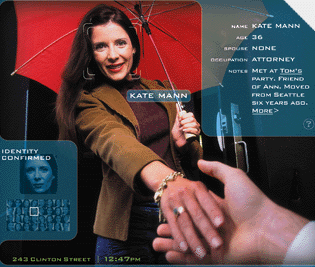|
This is my dynamic, frequently updated homepage. This is a NewsLog, also known as a WebLog or Blog.
Everything is evolving, so don't assume too much.
People to watch:
Adina Levin
Andrius Kulikauskas
Britt Blaser
Catherine Austin Fitts
Chris Corrigan
Clay Shirky
Dan Gillmor
Dave Pollard
David Allen
David Weinberger
Dewayne Mikkelson
Dina Mehta
Doc Searls
Elisabet Sahtouris
Elizabeth Lawley
Euan Semple
Florian Brody
Frank Patrick
Gen Kenai
George Dafermos
George Por
Graham Hancock
Greg Elin
Hazel Henderson
Heiner Benking
Inspector Lohman
Jean Houston
Jerry Michalski
Jim McGee
Jim Moore
John Abbe
John Perry Barlow
John Robb
Joi Ito
Jon Husband
Jon Lebkowsky
Jon Udell
Jonathan Peterson
Judith Meskill
Julian Elvé
Julie Solheim
Kevin Marks
Lawrence Lessig
Leif Smith
Letecia Layson
Lilia Efimova
Lisa Rein
Marc Canter
Mark Oeltjenbruns
Mark Pilgrim
Mark Woods
Martin Dugage
Martin Roell
Mary Forest
Matt Mower
Max Sandor
Michael Fagan
Mike Owens
Mikel Maron
Mitch Kapor
Mitch Ratcliffe
Nathalie dArbeloff
Netron
Noam Chomsky
Paul Hughes
Peter Kaminski
Phil Wolff
Philippe Beaudoin
Ray Ozzie
Raymond Powers
Rebecca Blood
Roger Eaton
Roland Tanglao
Ross Mayfield
Scott Lemon
Sebastian Fiedler
Sebastien Paquet
Skip Lancaster
Spike Hall
Steven Johnson
Stuart Henshall
Thomas Burg
Thomas Madsen-Mygdal
Thomas Nicholls
Timothy Wilken
Todd Suomela
Tom Atlee
Tom Munnecke
Tom Tomorrow
Ton Zijlstra
Lionel Bruel
Loic Le Meur
Nancy White
Mark Frazier
Merlin Silk
Robert Paterson
Colby Stuart
Nova Spivack
Dan Brickley
Ariane Kiss
Vanessa Miemis
Bernd Nurnberger
Sites to watch:
Edge
Junto
Absara
Rhizome
Nanodot
HeadMap
Openworld
FutureHi
Imaginify
Do No Harm
BoingBoing
Smart Mobs
Webcamorama
MetaFilter
NotThisBody
Disinfopedia
YES Magazine
Collective Web
WorldChanging
Disinformation
Escape Velocity
Space Collective
Friendly Favors
Emergent by Design
Independent Media
Global Ideas Bank
Forbidden Science
Greater Democracy
ThoughtsOnThinking
Disclosure Project
Explorers Foundation
Manufacturing Dissent
Collective Intelligence
Action without borders
Free Expression Network
Co-intelligence Institute
Electronic Frontier Foundation
French:
Emmanuelle
Manur
Elanceur
Loeil de Mouche
IokanaaN
Blog d'Or
Le Petit Calepin
GeeBlog
Absara
Guillaume Beuvelot
Ming Chau
Serge Levan
Jean Michel Billaut
C'est pas Mécanique

I live in Toulouse, France where the time now is:
01:01
Unique Readers:

Primarily
Public Domain
Everything I've written here is dedicated to the
Public Domain.

The quotes from other people's writings, and the pictures used might or might not be copyrighted, but are considered fair use. Thus, overall, this weblog could best be described as being:
Primarily Public Domain. |
Syndication:
 ![Validate my RSS feed [Valid RSS]](http://www.newciv.org/pic/valid-rss.png)
|
| Tuesday, February 11, 2003 |  |
|
|
|
 I always find it fascinating to discover the different ways that people work differently. The ways we tick by different clocks, the ways we live within different worldviews, the ways we think differently and have different instincts. Not good or bad ways, but just different ways things are right for us. To embrace all of those differences will necessarily bring about a certain feeling of unity amongsts us. I always find it fascinating to discover the different ways that people work differently. The ways we tick by different clocks, the ways we live within different worldviews, the ways we think differently and have different instincts. Not good or bad ways, but just different ways things are right for us. To embrace all of those differences will necessarily bring about a certain feeling of unity amongsts us.
As I'm preparing for moving to France, I'm reading a lot of books, including books about how French people are peculiarly different from Americans. "French or Foe" by Polly Platt is a delightful and very helpful book in regards to understanding the French culture from the inside.
One of the sources of understanding she mentions is the work of the renowned anthropologist Edward T. Hall. He wrote a book called "An Anthropology of Everyday Life" for one thing. He has studied how people work differently in different cultures. One distinction is whether people are 'monochronic' or 'polychronic'. That is when talking about how people relate to time. Monochronic people give great importance to doing things on time, and they tend to do things linearly and orderly, one at a time, and if somebody throws off the schedule by not doing what they're supposed to at the right time, they get upset. Polychronic people on the other hand relate to time totally differently. Actually, they focus more on people and relationships, and they do many things at the same time, and if something doesn't happen at the specified time, they know that it is because other things came up, and it isn't a big deal. The U.S., England, Germany, Scandinavia - they're predominantly monochronic cultures. There are many individuals who might be different, though, so it is just as an overall stereotype. Most other countries are polychronic. Certainly Mediteranean countries, Middle East, Africa, most of Asia. 'Tomorrow' might mean tomorrow, the day after, next week, or next month, all depending on lots of things, and also depending on the nuances within those individual cultures.
Another distinction in how different people experience the world is whether they're 'high context' or 'low context'. Again, most of the Northern countries are low context. That means that many things can be done without much pretext or context. You can call somebody you don't know on the phone, and 5 minutes later you might have carried out a business transaction and you're done with it. What is important is what is accomplished. A quick in and out and you're done. High context cultures on the other hand require much more to be involved. You primarily deal with people you know or that your family or friends know. There is a lot of codes of behavior that are important. Lots of things need to be right before one can carry out a transaction with somebody. Doesn't necessarily have to take a long time, but a number of things certainly have to be in order.
France is described as primarily polychronic and high context.
One thing I notice is that elements of these distinctions are found in different people within any culture, and they might appear in different environments for different people at different times. I notice that I expect one or the other in certain situations, and might be puzzled when I run into a different program than I expect. There are certain kinds of information that it is very hard to get unless you know somebody who knows somebody who can answer your questions. I.e. it is only available through high context. In Los Angeles, in business, people are monochronic, but if you invite people for a party, they're polychronic. You can't possibly know whether they will come, or when, or who else they might bring.
[ Culture | 2003-02-11 23:59 | | PermaLink ] More >
|
|
|
|
 This site shows the front page of most of the world's major newspapers today at the same time. That's rather neat. I personally like to have a big overview. I like anything that starts with the global view and then allows me to drill deeper into something that interests me. This site shows the front page of most of the world's major newspapers today at the same time. That's rather neat. I personally like to have a big overview. I like anything that starts with the global view and then allows me to drill deeper into something that interests me.
[ News | 2003-02-11 23:59 | 0 comments | PermaLink ]
|
|
| Monday, February 10, 2003 |  |
|
|
|
 My three year old daughter is great at learning by mimicking. She will do things sort of like grownups do it. She'll go through the motions, press the buttons, say the words, and often she'll quickly learn to do things for real. She's recently been practicing jokes, and she's mimicked the rhythm really well, even if the punch line isn't strictly speaking funny. Oh, it is very funny when she does it, no matter what the punch line is. It is a great strategy for a baby or a toddler. Just start faking it till you make it. It is delightful and wonderful and entertaining that it works. My three year old daughter is great at learning by mimicking. She will do things sort of like grownups do it. She'll go through the motions, press the buttons, say the words, and often she'll quickly learn to do things for real. She's recently been practicing jokes, and she's mimicked the rhythm really well, even if the punch line isn't strictly speaking funny. Oh, it is very funny when she does it, no matter what the punch line is. It is a great strategy for a baby or a toddler. Just start faking it till you make it. It is delightful and wonderful and entertaining that it works.
But what starts worrying me is that it also seems to be a pervasive principle in education in schools as well. American schools is what I'm talking about. Their homework and essays often adds up to sounding like you're actually talking about something real and useful, even if you aren't. So, if you can just regurgitate some of the materials you've studied, and put together sentences that look fairly correct, you'll do pretty well. And if the components are mostly right, you'll get a good grade. Nobody pays much attention to whether the things you do actually are useful.
I realized some horrible things about education some years ago when it was part of my job to hire computer programmers. I hired a dozen or so programmers over several years. To do that, I had to look through the stacks of thousands of applications we'd gotten, and I needed to interview hundreds of people and pick the ones to hire. And a disturbing picture quickly started forming. Very often, the more advanced a degree the person had in Computer Science, the more hopeless it was to expect them to program anything real. Well, generalizing is dangerous, so let me point out that I'm talking about those who didn't have real jobs as programmers while they were studying, and who didn't spend all their sparetime programming video games. And, don't get me wrong, there are some really useful things on the curriculum in Computer Science, which all programmers really ought to know. What I'm talking about is the people who just went through the college courses and exercises and exams, hoping to be great computer scientists, hoping they'd have a career once they were done. If it were just a Bacherlor's degree, there might be some hope that they could actually program, and that they might apply some of what they learned. If it was a Master's degree, it was probably too late. And the clerk in the store where we bought our computers, he had a Ph.D. in Computer Science, the poor fellow.
The point is that here we have some people who've worked hard for years, and they've learned to get things *mostly* right, who've learned that if they get 80% of the questions right, they're doing well. If they can regurgitate what the textbook says, and make their answers look about right, they do well in school. They've been thoroughly trained and validated into doing things that look sort of right, but which aren't.
The problem is that in the real world, if you have the job of building something that actually works, as a computer programmer or as an engineer, or you need to do something very precise and important, like surgery, you can't get away with anything much less than 100% right. You might get away with 99.99% right, and the last 0.01% will still haunt you. But if you're several percent off, the bridge will fall down, the patient will die, and your software just won't run. You can't *almost* save an account record and still call it an accounting program. It doesn't matter if you made a good effort and that your notes look good if you amputated the wrong leg.
I solved my hiring problem by giving people actual tests that involved solving a problem by writing a program, and I hired the people who wrote a working program. The best programmer I hired was a 19 year old guy fresh out of highschool.
The bigger point I'm trying to make is that a large percentage of the human population, even as grownups, are just mimicking what others are doing, regurgitating what they've heard, and trying to look right. And a surprisingly small percentage of people are actually thinking through and figuring out how to make things work.
And the horrifying thing is that sometimes whole countries are run by people who're just actors who're kind of winging it and trying to say things that sound about right. And they gather people around them who're good at making things sound like they know what they're talking about. And when they say these things in the media, lots of people will repeat them, and will go around talking about stuff they really have no clue about, but they know how to act as if they do.
[ Knowledge | 2003-02-10 21:48 | | PermaLink ] More >
|
|
|
|
 Nice article in Technology Review by Nicholas Negroponte (MIT Media Lab). Nice article in Technology Review by Nicholas Negroponte (MIT Media Lab)." Innovation is inefficient. More often than not, it is undisciplined, contrarian, and iconoclastic; and it nourishes itself with confusion and contradiction. In short, being innovative flies in the face of what almost all parents want for their children, most CEOs want for their companies, and heads of states want for their countries. And innovative people are a pain in the ass. [...]
One of the basics of a good system of innovation is diversity. In some ways, the stronger the culture (national, institutional, generational, or other), the less likely it is to harbor innovative thinking. Common and deep-seated beliefs, widespread norms, and behavior and performance standards are enemies of new ideas. Any society that prides itself on being harmonious and homogeneous is very unlikely to catalyze idiosyncratic thinking. Suppression of innovation need not be overt. It can be simply a matter of people’s walking around in tacit agreement and full comfort with the status quo. [...]
Our biggest challenge in stimulating a creative culture is finding ways to encourage multiple points of views. Many engineering deadlocks have been broken by people who are not engineers at all. This is simply because perspective is more important than IQ. The irony is that perspective will not get kids into college, nor does it help them thrive there. Academia rewards depth. Expertise is bred by experts who work with their own kind." Ah yes, how do we teach people to be awake, to think new thoughts, to see things from different angles ...when we mostly are teaching kids in school to be like everybody else? Negroponte does have a point about the U.S. though. The culture in the United States, at least in some major parts, is highly valuing individual creativity and success, and it is very forgiving about failures. And it values the unique perspectives of children, even if the school system doesn't really reflect it. That is quite different from many other countries, and is a big reason why the U.S. traditionally have produced many more innovations into the world than its population would indicate.
[ Knowledge | 2003-02-10 22:46 | 0 comments | PermaLink ]
|
|
|
|
I believe that sooner or later we'll be switching over to totally different energy production devices. Not burning old dinosaurs, but rather drawing a charge from the quantum field, or something along those lines. And there has been no lack of people who seemed to have invented over-unity devices. But either somebody managed to buy off or murder ALL of them, or they didn't really work when put under scrutiny. So it is with some caution that I pass on news about 'free' energy devices. But Stephen Greer of the Disclosure Project has his head screwed on fairly well, and even though he likes being the center of attention, what he presents is normally very solid. A while back he set up a company, Space Energy Access Systems, for the purpose of locating and marketing such devices. And he believes he has something now. See transcript of an interview."It's not very big at all. I picked it up - you can pick it up with one hand. Took it out actually on a sidewalk. This device gathered, very passively, less than one watt of power from the environment - I won't say how it was done, I'm not allowed to at this point - and the machine started up. It generated hundreds of watts of power in usable form. We hooked this up ourselves, so there was no mystery about it. We even selected the things to hook up to this thing. It ran a 300-watt light bulb, a 100-watt light bulb, a stereo and an oscillating fan with an electric motor, all at the same time with literally no artificial manmade input of power." I hope it stands up to further scrutiny. Getting rid of the oil economy would change everything.
[ Technology | 2003-02-10 23:05 | | PermaLink ] More >
|
|
|
|

Long list of some of the best signs from the peace march in Washington D.C. on January 18th:- Drunken frat boy drives country into ditch.
- Bush/Cheney: Malice in Blunderland
- Who would Jesus bomb?
- War begins with 'Dubya'.
- Bush is proof that empty warheads can be dangerous.
- Let's bomb Texas, they have oil too.
- How did our oil get under their sand?
- Daddy, can I start the war now?
- 1000 points of light and one dim bulb.
- Sacrifice our SUV's, not our children.
- Preemptive impeachment.
- Frodo has failed, Bush has the ring.
- Look, I'll pay more for gas!
[ Politics | 2003-02-10 23:34 | | PermaLink ] More >
|
|
|
|
Informative article at ZNet, doing a good job of analyzing the facts in relation to Colin Powell's U.N. presentation the other day.Only two days after Colin Powell made his presentation to the U.N. Security Council, the evidence he provided is unraveling. Through interviews with experts, intelligence sources, and an examination of the physical evidence, reporters are piecing together facts that refute all of his major claims. In brief, most of it is really old, and the grainy spy pictures are of sites that U.N. inspectors already have gone over recently without finding anything.
[ Politics | 2003-02-10 23:59 | | PermaLink ] More >
|
|
| Sunday, February 9, 2003 |  |
|
|
|
 Lisa Kimball's site Group Jazz is about empowering groups to collaborate better. I share her excitement about groups that work really well. Lisa Kimball's site Group Jazz is about empowering groups to collaborate better. I share her excitement about groups that work really well." When I think about the times when I have felt most creative, most alive, most energized I think about times when I've connected with other people. A lot of times it's when I've been in a group that is in the zone. That zone is sometimes called high performance, excellence, or high productivity. I bet everyone can think of experiences you've had with groups like this.
I've always been fascinated by the dynamics of these great groups. What is it about the relationships, the context, the environment, the task, the leadership, the facilitation, and all the other factors that makes the difference? What if we could live and work like this more of the time? What can we do as a member of any group we're in to turn up the dial on the energy, passion, and fun? What do people with sponsorship, leadership, and other key roles need to do to create the conditions for these groups to grow and thrive?" And, yes, Jazz is a good metaphor for it. It involves shared purpose and structure, but most importantly, somehow enabling individual creativity and freedom.
[ Organization | 2003-02-09 17:18 | | PermaLink ] More >
|
|
|
|
Doc Searls invented BuzzPhraser, the TechnoLatin phrase generator. It is great for coming up with impressively sounding buzz phrases to use in your next business plan. I bet investment funds are readily available for the..Inherently Bridging Exclusive Quality Proposition Channel particularly when it comes with the.. Upwardly Configured Interactive Paradigm Empowerment Option but of course, first you need to make the..Operationally Value-Added Movement Differentiation Decision
[ Patterns | 2003-02-09 17:31 | | PermaLink ] More >
|
|
|
|
From Slashdot:Business2.com reports that while many corporations have monitoring tools and restrictions on Internet usages for non-work related activities, these can have negative effects on the productivity of the workplace. The report notes that people have to take days off from work to deal with personal business that could have been done in a few minutes or hours from a work net connection, and that employee morale is generally down when net controls are in place. A related study suggests employees spend more time doing work from home than playing at work. I quit my last 9-5 job-job when they started implementing an oppressive central monitoring scheme. Their loss. I won't work for somebody who covertly sits and reads my personal e-mail.
[ Organization | 2003-02-09 21:34 | 0 comments | PermaLink ]
|
|
|
|
From David Weinberger:"Two nights ago, Bush's speechwriter was on The Daily Show, the Jon Stewart fake news program that's funny because it blurts out the truth. The speechwriter explained with glee how he came up with the phrase 'Axis of Evil'. He originally wrote 'Axis of Hatred', but his boss (not Bush) took one look at it and said, "No, it's the 'Axis of Evil'", repeating it a few times aloud to see how it sounds.
This constituted the debate over whether these countries actually are evil and the effect classifying them as such would have. A couple of lobes short of The West Wing, eh?" It would be really funny if it all were a TV show. World politics run by actors and advertising copywriters and, based on articles in school papers. But I wonder when we might actually again see a country run by people who are skilled and qualified for the job, rather than just knowing how to make things sound good on TV.
[ Information | 2003-02-09 21:49 | 0 comments | PermaLink ]
|
|
|
|
Funny article by Terry Jones. A parody, about a guy who doesn't get along with his neighbors, and they're hiding their evil deeds so well that nobody else can see them, so he'll just have to strike first to take them out himself. Very to the point and hilarious."...Now, however, George W. Bush has made it clear that all I need to do is run out of patience, and then I can wade in and do whatever I want!"
[ Politics | 2003-02-09 22:08 | | PermaLink ] More >
|
|
| Saturday, February 8, 2003 |  |
|
|
|
 From Mikel Maron's Brain Off blog: From Mikel Maron's Brain Off blog:"Contrary to expectations, urban landscapes are some of the most interesting ecologies. The variety of landscapes and microclimates (roads, parks, gardens, rail, canals, industries), the intense flow of exotic materials for commerce and gardening, and continual disturbance, all contribute towards many opportunities for nature. Due to such variety, cities are often more biologically diverse than the surrounding countryside. Nature is astoundingly creative, and keen to exploit subtle convoluted chance.
Nature continues to happen, in more astounding forms, even within our most artificial environments. Some bizarre relations of humans and nature from The Ecology of Urban Habitats- The overall result is that urbanized areas, despite a large reduction in the total vegetation cover, support a higher number of species than the surrounding countryside. [p. 11]
- .. tropical fauna and flora occurs in certain canals where water used to cool machinery is discharged. Thermal pollution of the River Don by the steel industry has enabled wild figs to colonize its banks, [p. 118]
- In fact all industry, as it gets tidied up, becomes less interesting for wildlife. The very features that allow a rich flora and fuana to survive - the squalor, rubbish, old buildings and machinery, derelict huts, rotting dumps, ineffiecient handling - are becoming unacceptable to management [p. 122]
- [Oxford ragwort] A native of Southern Italy, was cultivated in the Oxford Botanical Garden for over a hundred years before it eventually escaped (1794) and soon reported as plentiful on almost every wall in the town. About 1879 it reached the Great Western Railway system where the plumed seed engaged in a new form of dispersal, being carried along in the vortex of air behind express trains, or even inside them [p. 139]
- the reasons for caraway being limited to railway verges in Scotland ... caraway cake topped with fresh seeds was pocketed at post-funeral teas ... on the way home they tried to eat it, gave up and threw it out of the window [p. 142]
- A more subtle effect of dogs can be observed on the base of street trees against which they urinate. This area, known as the canine zone, carries a different epiphytic flora to the rest of the trunk. [p. 162]
- Starlings were successfully introduced into New York in 1890-91 as part of a project to establish in the States all the plants and animals mentioned by Shakespeare. [p. 171]
- .. [an] experiment took place in Germany during the Third Reich when exotics [foreign plants] became enemies of the state and for a short time naturalistic planting flourished ... [p. 184]"
Interesting. In urban areas there's greater diversity than in industrialized farm land, so nature has the opportunity for thriving better in many ways. Urban landscapes are aggregates of many individual choices, many small bets on different things. Varied constellations of new things being built, combined with old things decaying. Farm land is homogenized monopolistic monoculture. Maybe the worst crime against nature is not cities, but modern farming methods?
[ Culture | 2003-02-08 20:04 | | PermaLink ] More >
|
|
|
|
 I think the world of microbial organisms is really fascinating. For example, there have been various discoveries of how amazingly sturdy microbes can be, and how they can survive in what we would consider the most inhospitable environments. I think the world of microbial organisms is really fascinating. For example, there have been various discoveries of how amazingly sturdy microbes can be, and how they can survive in what we would consider the most inhospitable environments.
Just recently, scientists discovered that there is plenty of life even deep below the ocean floor. They sampled 3.5 million year old crust 1000 feet below the bottom of the Pacific Ocean. There is an enormous pressure, and none of the normal energy sources that life depends on. But different microbes exist there. Another story here , about rock-eating microbes on the sea floor. It estimates that 10-30% of the Earth's bio-mass consists of microbes deep inside the crust.
Bacteria also have amazing abilities to survive for a long time under extreme conditions in a suspended state.On April 20, 1967, the unmanned lunar lander Surveyor 3 landed near Oceanus Procellarum on the surface of the moon. One of the things aboard was a television camera. Two-and-a-half years later, on November 20, 1969, Apollo 12 astronauts Pete Conrad and Alan L. Bean recovered the camera. When NASA scientists examined it back on Earth they were surprised to find specimens of Streptococcus mitis that were still alive. Because of the precautions the astronauts had taken, NASA could be sure that the germs were inside the camera when it was retrieved, so they must have been there before the Surveyor 3 was launched. These bacteria had survived for 31 months in the vacuum of the moon's atmosphere. Perhaps NASA shouldn't have been surprised, because there are other bacteria that thrive under near-vacuum pressure on the earth today. Anyway, we now know that the vacuum of space is not a fatal problem for bacteria. Or, even more wild, 30 million year old bacteria have survived in amber:Biologists Raœl Cano and Monica Borucki had extracted bacterial spores from bees preserved in amber in Costa Rica. Amber is tree-sap that hardens and persists as a fossil. This amber had entrapped some bees and then hardened between 25 and 40 million years ago. Bacteria living in the bees' digestive tracts had recognized a problem and turned themselves into spores. When placed in a suitable culture, the spores came right back to life. Those last two are from Cosmic Ancestry, a very interesting site supporting the possibility that life on Earth has been seeded from space. Here's another recent article about that, suggesting that life probably exists now on Mars, under similar conditions as what we find in the Earth's crust, and that it is quite likely that the process here was seeded by microbes from Mars.
[ Nature | 2003-02-08 23:59 | 0 comments | PermaLink ]
|
|
| Friday, February 7, 2003 |  |
|
|
|

In times of change it can be useful to look back at other times of cultural change, at least those that can be considered successful in retrospect. The Renaissance was one of those periods. 'Renaissance', is French for 'rebirth'. It describes the intellectual and economic changes that occurred in Europe from the fourteenth through the sixteenth centuries. Europe emerged from the stagnation of the Middle Ages and experienced an age of artistic, social, scientific and political innovation and new thought, as well as financial growth.
The Renaissance is usually considered to have originated in Florence, Italy. Fifteenth-century Florence was a self-governed, independent city-state. The basis of its economic success was its twelve artist guilds that regulated the trades. Wealthy guild members held position in government and were very influential in both society and politics. Because of its strong economy and a political philosophy that was dedicated to the welfare of the city, Florence thrived. The Florence banking business was also a foundation for its success. The Florentine gold coin known as the florin was of such reliable purity that it became the standard coinage throughout Europe.
Many factors contributed to the emergence of the Renaissance throughout Europe:
Gutenberg invented the printing press in 1445, which made it possible to more widely read about philosophy and science, and the stranglehold of the church was diminished. And people started to read 'classics', texts from ancient Greece and Rome, which had been completely ignored for centuries. That inspired a re-cycling and re-invention of good things from many sources.
Improvements in navigation and map making made it possible to travel farther than before, and there was a lively trade, bringing in exotic spices and gems and fabrics from foreign lands.
Architecture was inspired by the ancient Greeks and Romans, and by newfound mathematical principles, and a fascination for harmonious proportions, the golden mean, symmetry.
There were also many negative factors that have inspired the need for an explosion of innovation. Europe had been devastated by the plague, kept in the dark by the church, and life had just been hard work and misery for most people.
Any of that we can use today? Well, it was about bringing in many different new and old influences. It was about an increased ability to communicate information in writing. It was about advances in science that made it possible to understand the world better. It was about incrased ability to trade. It was about versatile geniuses who were both artists, scientists, philosophers, architects and politicians, who would weave these many influences together. ...All of which might very well apply to our situation now, with the Internet, and suddenly increased facilities for interacting with cultures and with knowledge we were isolated from before.
Here are some references on the Renaissance: [link] [link] [link] [link] [link].
[ Culture | 2003-02-07 14:45 | | PermaLink ] More >
|
|
|
|

The answer is never the answer.
What's really interesting is the mystery.
If you seek the mystery instead of the answer,
you'll always be seeking.
I've never seen anybody really find the answer -
they think they have, so they stop thinking.
But the job is to seek mystery, evoke mystery,
plant a garden in which strange plants grow and
mysteries bloom.
The need for mystery is greater
than the need for an answer.
--Ken Kesey
[ Inspiration | 2003-02-07 23:59 | | PermaLink ] More >
|
|
| Thursday, February 6, 2003 |  |
|
|
|
 I'm tired of being a hard worker, rather than a smart operator. I don't know where I picked it up, but I've for years had the strategy of a workaholic in denial. If I just work harder, and put in more hours, and I try to keep up with everything that is thrown at me, I'll be alright. And that worked fine for a long time. At some jobs I've had, people were puzzled that I could get so much done. But my secret was sometimes not much more than that I worked 80 hours per week, and they only worked 50. They slept 7 hours per night, and I managed with 5. I'm tired of being a hard worker, rather than a smart operator. I don't know where I picked it up, but I've for years had the strategy of a workaholic in denial. If I just work harder, and put in more hours, and I try to keep up with everything that is thrown at me, I'll be alright. And that worked fine for a long time. At some jobs I've had, people were puzzled that I could get so much done. But my secret was sometimes not much more than that I worked 80 hours per week, and they only worked 50. They slept 7 hours per night, and I managed with 5.
But it is also the choice between whether you're the guy who does the work, or the guy who makes the work happen. I've been a supervisor, and led and managed teams of people, but I've somehow managed to always keep the attitude that I was the guy who'd do the work. Like, for one large programming project, I had five programmers, but it was still me who came in Saturdays, and who took the work home, and who ended up having written 90% of the code. Several times I've been given the choice on whether I'd be the manager or whether I'd be the techie, and I usually chose to be the chief techie.
But where it goes wrong is in the knowledge work of knowing what exactly you're doing, why you're doing it, and what the best ways of doing things are, including who best to delegate it to. Just oneself working harder is often a pretty dumb approach. What has sometimes happened to me is that I've been so busy with my nose to the grindstone, that I didn't notice that everybody else around me got really busy jockeying for position, writing reports, making presentations, protecting their territories, covering their asses, gathering really good information about what they should or shouldn't be doing. And suddenly I realize I have 15 bosses telling me what to do, and I'm the only guy who actually works, and there aren't hours enough in the day to do what everybody wants. And I had spent zero time on maneuvering around and negotiating things, so I have no political leverage.
Recently there was this one part of a bigger programming project I just couldn't seem to get around to. It was writing a very efficient SMTP mailing engine in C. Normally I do PHP programming nowadays. My C coding skills were extremely rusty, and I sort of needed to study up on what to do, and how to do a multi-threaded program. And I kept saying that I hoped to get to it next week. And they were very patient, but after about a year of that, they figured it wasn't going to happen, and instead of using my system they went out and spent 1/2 million dollars elsewhere, on another system doing roughly the same thing as what I had written for them, but which had solved that particular mailing problem. And the ridulous thing is that the piece I needed could have been coded in about a month by an experienced C programmer. And if I had told them that I needed another programmer, they would have said "Yes, of course". But I didn't. I just tried to work harder.
Enough. Time for a different strategy. More with less.
[ Diary | 2003-02-06 16:35 | | PermaLink ] More >
|
|
|
|
 On Monday the British government released a document: "Iraq - Its Infrastructure of Concealment Deception and Intimidation", which appeared to be an up-to-the-minute intelligence based analysis, timed to back up what Colin Powell told the U.N. the next day. And Powell made a point out of praising it. Unfortunately, or maybe humorously, it turns out to have been put together from older public articles that various people have written, and most of it has just been cut and pasted verbatim, including typos. Some of it is taken from a paper written by a California college student. Seems like the British government doesn't have the resources to make up convincing stories themselves, let alone actually doing the intelligence work. On Monday the British government released a document: "Iraq - Its Infrastructure of Concealment Deception and Intimidation", which appeared to be an up-to-the-minute intelligence based analysis, timed to back up what Colin Powell told the U.N. the next day. And Powell made a point out of praising it. Unfortunately, or maybe humorously, it turns out to have been put together from older public articles that various people have written, and most of it has just been cut and pasted verbatim, including typos. Some of it is taken from a paper written by a California college student. Seems like the British government doesn't have the resources to make up convincing stories themselves, let alone actually doing the intelligence work.
[ Politics | 2003-02-06 17:45 | 0 comments | PermaLink ]
|
|
|
|
 It seems to be just a demo, but apparently Japanese scientists are working on ways of making camouflaged objects transparent. The principle is basically to record video images behind someone or something, and then projecting it or displaying it in front. Just like the U.S. military is planning to invent NanoPaint that can cover vehicles and make them invisible. It seems to be just a demo, but apparently Japanese scientists are working on ways of making camouflaged objects transparent. The principle is basically to record video images behind someone or something, and then projecting it or displaying it in front. Just like the U.S. military is planning to invent NanoPaint that can cover vehicles and make them invisible.
[ Technology | 2003-02-06 17:45 | 0 comments | PermaLink ]
|
|
|
|
 Excellent article by Cóilín Nunan: "Oil, Currency and the War on Iraq". Fascinating explanation of some major economic mechanisms involving dollars and euros and oil. A very big reason that the United States is such an economically and militarily dominating country is apparently that U.S. dollar is the de facto world reserve currency. Lots of things are counted in dollars and some goods are only sold for dolars. That means that foreign governments and corporations and banks are keeping large dollar reserves. That essentially amounts to a huge loan the rest of the world is giving to the United States, which will subsidize the U.S. economy. In order to acquire those dollars, the rest of the world has to provide goods and services for those dollars. That allows the U.S. to have a huge import/export imbalance. Last November, 48% more imports than exports. It would be untennable for any other country to run such a deficit. Excellent article by Cóilín Nunan: "Oil, Currency and the War on Iraq". Fascinating explanation of some major economic mechanisms involving dollars and euros and oil. A very big reason that the United States is such an economically and militarily dominating country is apparently that U.S. dollar is the de facto world reserve currency. Lots of things are counted in dollars and some goods are only sold for dolars. That means that foreign governments and corporations and banks are keeping large dollar reserves. That essentially amounts to a huge loan the rest of the world is giving to the United States, which will subsidize the U.S. economy. In order to acquire those dollars, the rest of the world has to provide goods and services for those dollars. That allows the U.S. to have a huge import/export imbalance. Last November, 48% more imports than exports. It would be untennable for any other country to run such a deficit.
Next major point is that one of the reasons everybody has to have dollars is that the OPEC oil producting countries only accept dollars for oil. Well, not all of them. The only one that does something different is Iraq, which only accepts Euros for their oil, since 2000. And Iran is considering it as well. And the thing is that it might just as well be Euros that everybody used as a reserve currency. It would apparently be a better choice in many ways, because the European economies are more balanced, and the OPEC countries would end up getting more value for their oil. So, now, what would happen if Euros became the only choice for buying oil? Most likely the U.S. economy would plunge, because it would no longer be subsidized in that manner. And EU would probably be quite happy being subsidized in its place. Anybody thinks all this might have something to do with the great urgency to take over Iraq? And why would Britain support it?
[ Politics | 2003-02-06 19:36 | | PermaLink ] More >
|
|
| Wednesday, February 5, 2003 |  |
|
|
|
 "Time is that quality of nature that keeps events from happening all at once. Lately it doesn't seem to be working." --Anonymous
My copy of "Getting Things Done" by David Allen arrived today. Matt Mower recommended it. I'm excited. I paged through it and read the first chapter. It might just keep me from going insane. It is all about unloading ALL the stuff floating around in your mind which you sense you ought to be doing something about, and putting them into a system you can trust to be able to find them in again, so that you can relax and enjoy life in the moment without worrying about mountains of incomplete and ill-defined tasks."There is usually an inverse proportion between how much something is on your mind and how much it's getting done." It is close to 20 years ago since I last felt really organized. It involved In-, Pending- and Out-baskets on my desk. It involved daily to-do lists, with items I could happily check off during the day. It involved a routine of Do It, Delegate It, File It, or Toss It, with every item that came to me. And it involved a filing cabinet with folders with nice labels on. Unfortunately the world has changed since then. It was before e-mail and cellphones for one thing. And everything is now more fast, more fuzzy, more multi-dimensional, and there's a hundred times more of everything. Something better is needed. I think I once again have hope, that I might possibly once more become organized and stress-free.
[ Knowledge | 2003-02-05 19:30 | | PermaLink ] More >
|
|
|
|
 Today I received my Certificate of Registration for the service mark ORGSPACE from the United States Patent and Trademark Office. It's for the word, not the logo, and it is as applied to online software. For those of you who haven't tried it, it is a rather lengthy process to register a trademark (for tangible products) or service mark (for services). Took about three years, and a number of phone calls with lawyers. Today I received my Certificate of Registration for the service mark ORGSPACE from the United States Patent and Trademark Office. It's for the word, not the logo, and it is as applied to online software. For those of you who haven't tried it, it is a rather lengthy process to register a trademark (for tangible products) or service mark (for services). Took about three years, and a number of phone calls with lawyers.
So, what exactly am I going to do with it? I'm not sure yet, but the thought is that it is a brand to put on software I'm involved in making, which helps people organize their stuff. Like this NewsLog program. Even better if it happens to be a particularly brilliant universal, multi-dimensional system for storing any kind of information.
[ Diary | 2003-02-05 19:57 | | PermaLink ] More >
|
|
|
|
 U.S. foreign policy is becoming more and more like a Monty Python show. UPI reports that Richard Perle, the chairman of the Pentagon's Policy Advisory Board is condemning French and German policy on Iraq in the strongest terms. He thinks that France's attititude is particularly dangerous and serious. U.S. foreign policy is becoming more and more like a Monty Python show. UPI reports that Richard Perle, the chairman of the Pentagon's Policy Advisory Board is condemning French and German policy on Iraq in the strongest terms. He thinks that France's attititude is particularly dangerous and serious."France is no longer the ally it once was... " and he says the U.S. "must develop a strategy to contain our erstwhile ally or we will not be talking about a NATO alliance." and how about this one "I have long thought that there were forces in France intent on reducing the American role in the world." No kidding!?! It is time to send in the bombers. Those Frenchies are too damned independent. Wanting their own language and foreign policy, sheesh, they're just a bunch of revolutionaries. Let's just freeze them out.
And those Germans: "But in the German case, the behavior of the Chancellor is idiosyncratic. He tried again to incite pacifism, and this time failed in Sunday's elections in Hesse and Lower Saxony. His capacity to do damage is now constrained. Chancellor Schroeder is now in a box, and the Germans will recover their equilibrium." INCITING PACIFISM!?! Yeah, I can see - that's very serious. Maybe it is time to bomb Dresden again, so they can forget about silly notions like that.
Sarcasm aside, it is looking pretty grim if that is official policy. ... Maybe what is going on is that this is now the Internet world, so we actually hear what people like that are talking about, instead of it just being something they would talk quietly about behind closed doors, and then the CIA would sneak out and assasinate somebody and fund some new dictators that were easier to control.
[ Politics | 2003-02-05 22:44 | | PermaLink ] More >
|
|
| Tuesday, February 4, 2003 |  |
|
|
|
 Doc Searls quotes Brent Ashley: Doc Searls quotes Brent Ashley:"What pervasaive meme can we come up with that will be strong enough to counter the powerful theft/piracy images? Let's all blog aloud and get the juices flowing, shall we?
Ownership of physical property implies exclusive use. I own my lawn mower, it's in my posession, in order for you to use it I must relinquish its use to you. You shouldn't loan it to your neighbour in turn without my permission, especially as that extends my inability to make use of it. If you take it from me, I am left without its use altogether. I can ask to be compensated for the loss. I lose a physical entity, and therefore control over its use.
Ownership of intellectual property does not imply exclusive use. You can play my music without depriving me of it. You can loan it to someone else without affecting my use, although you should ask my permission. I never lose my ability to have full use of the work. What I lose when you use my work without my permission or recompense is control over its use.
Obviously these are two very different concepts. Yet they're both called ownership . Concepts of theft and piracy of intellectual property just don't fit. How have such ill-fitting analogies come to permeate our conciousness?" I have some strong things to say about ownership, when I have some time, so later.
[ Culture | 2003-02-04 18:23 | | PermaLink ] More >
|
|
|
|
The Internet Topic Exchange is a new site inspired by Seb Paquet's idea for Ridiculously Easy Group Forming. The idea is that in one's weblog one identifies a post as belonging to a certain topic, and then, through a mechanism like for example TrackBack a centralized site gets notified of it, and it keeps a global index of stories under each of many topics.
I mention it here because I think that can be a very useful thing, and to make a note to myself to remember to get into the technicalities of it, so that users of my NewsLog program can participate too.
[ Programming | 2003-02-04 18:23 | | PermaLink ] More >
|
|
|
|
Timothy Appnel thinks about TrackBack. To explain it to you non-programmer types, TrackBack is a mechanism for letting another site know automatically that you've linked to it in your weblog. It makes it easier for all of us to be able to refer to other people talking about the same stuff.
I've done half of an implementation of a TrackBack thing for the NewsLog program that underlies this weblog here, but I didn't finish getting to understand the whole thing. I got as far as being able to make the required 'ping' to another site by manually entering the information in a form. But it really isn't worth much unless it happens automatically.
[ Programming | 2003-02-04 18:23 | 0 comments | PermaLink ]
|
|
|
|
 Jock Gill has a nice piece on Greater Democracy, which hits some things right on the head. Jock Gill has a nice piece on Greater Democracy, which hits some things right on the head."Nature has worked well for billions of years by making vast numbers of very small bets. This minimizes the risk that a single bad outcome could inflict. For this reason, our conservative brethren are correct in asserting Big Government is a problem. To the extent that Big Government represents a bet too big that imposes unacceptable risks, it is a problem that demands our attention. The failure of the old Soviet Union comes to mind.
But the riskiness of big bets doesn’t apply just to Big Government. It also applies to Big Business. And that’s the big bet today’s conservatives ask us to make over and over. The conservatives of course don’t call it a big bet. They call it 'privatization' and 'consolidation'. But they can’t have it both ways. If they want bigger and bigger bets on business, then we need government to protect the long term good for all by restraining the worst excesses of unfettered market capitalism with its narrow focus and myopic time scales. If conservatives want smaller government, they will have to agree to smaller businesses." Indeed. Big government and big business is the same kind of animal. Both tend to be counter-evolutionary forces, making us all collectively quite a bit dumber than we really are.
[ Politics | 2003-02-04 23:59 | | PermaLink ] More >
|
|
| Sunday, February 2, 2003 |  |
|
|
|
 A number of years ago, after being annoyed about having to wear thick glasses all day since my late teens, I sought out natural methods for improving my eyesight. In particular, I found a vision consultant who taught me principles, methods and exercises, loosely based on the Bates Method. It started working right away, and after a couple of months I could take off my glasses. For years I would only need glasses for driving at night. And I would faithfully do my exercises every day. But at some point I got lazy about it, and didn't keep up the exercises, and my sight has worsened. Not as bad as it was before, but I have to wear glasses if I drive of I'm out shopping. A number of years ago, after being annoyed about having to wear thick glasses all day since my late teens, I sought out natural methods for improving my eyesight. In particular, I found a vision consultant who taught me principles, methods and exercises, loosely based on the Bates Method. It started working right away, and after a couple of months I could take off my glasses. For years I would only need glasses for driving at night. And I would faithfully do my exercises every day. But at some point I got lazy about it, and didn't keep up the exercises, and my sight has worsened. Not as bad as it was before, but I have to wear glasses if I drive of I'm out shopping.
Now, looking around on the net, I found it depressing that the first thing I ran into was a lot of sites where eye doctors were claiming that this kind stuff is complete quackery, that myopia is genetic, and the only answer is glasses or surgery. Hm, I think I have a different opinion about who are the quacks.
What I found most profound about the principles of regaining natural sight is that they apply to many things in life. Here are some of them.
- Sight is primarily mental. If you can imagine something clearly focused, you can usually also see it like that with your eyes. If your mental picture is fuzzy, so is your eyesight.
- Everything in the world is always moving. Natural sight sees that continously, and natural eyes will glide gradually over the scene, rather than jumping around between fixed points. Bad eyesight starts when one begins to see things just as fixed items at fixed distances.
- Instead of letting yourself be thrown around by an apparently solid and immobile world, try turning your perspective around, and assume that you're still, and the whole world is constantly moving around you.
- The periphery is important. Natural sight sees the periphery, the context, all the time, although not as clearly as the portion being focused on. Bad eyesight starts when we focus on one thing to the exclusion of everything else, and when we insist that everything has to be clearly in focus. The periphery is never in focus - duh - but it is nevertheless very important.
- Natural sight is relaxed. You see better by relaxing, not by straining.
Just going for glasses or surgery, without changing one's habits, is almost as silly as taking a pain killer because somebody's standing on your foot. I feel bad that I've allowed myself to be so busy and stressed that I've forgotten about some of the fine ways I have of being relaxed and seeing better.
Here are some more sites: brief overview, method in a nutshell
[ Information | 2003-02-02 14:41 | | PermaLink ] More >
|
|
|
|
BBC says that Nestle has come to an agreement with Ethiopia, concerning their claim for $6 million. This looks like a victory for the Make Trade Fair campaign. I'm sure Nestle has lost a lot more than $6 million from the bad publicity they got from trying to extort money out of a famined country, and that's probably what made them change their minds.
[ News | 2003-02-02 22:38 | | PermaLink ] More >
|
|
|
|
The respected Washington, DC publication The Hill has confirmed that former conservative radio talk-show host and now Republican U.S. Senator Chuck Hagel was the head of, and continues to own part interest in, the company that owns the company that installed, programmed, and largely ran the voting machines that were used by most of the citizens of Nebraska. Used in elections where Hagel won very unexpected landslide victories.
[ News | 2003-02-02 22:49 | | PermaLink ] More >
|
|
|
|
User Not Found is a weblog by Dana J. Robinson, devoted to dealing with the death of online friends. Here, from a piece called 'Not knowing is the hardest':"Given the nature of communicating online, one person's failure to log on for days, weeks or months at a time can cause concern in the people who continue to log on regularly. It's especially worrisome when the person who isn't signing on was living with a known illness. While "killing" online personas happens all the time, the real tragedy occurs when a real life death happens and is chalked up to a person just not logging on anymore." Hm, indeed. How do we know? I can think of online friends who've died where it was only very coincidental that their other online friends heard about it. For one it was only because a family member was so bright and knowledgable to go and send an e-mail to her whole contact list. For another, I didn't know before several years later that he died. It would be nice if we could engage in networks of trust tight enough so that we quite naturally would file next of kin information with others in the network, so that we'll never just disappear without an explanation. Or, maybe, a deadman's switch, which releases certain kinds of contact information if we haven't logged in for some length of time.
[ Culture | 2003-02-02 23:26 | | PermaLink ] More >
|
|
|
|
 Ross Mayfield mentions some interesting thoughts and scenarios concerning augmented reality (e.g. heads up displays showing you information about what you're looking at) converging with moblogging (weblogging via mobile phone type devices). Ross Mayfield mentions some interesting thoughts and scenarios concerning augmented reality (e.g. heads up displays showing you information about what you're looking at) converging with moblogging (weblogging via mobile phone type devices).AR TOMORROW: RECOGNIZING FACES
Ever forget a face? Augmented reality will help you recover seamlessly when you bump into some-one and can't remember whether she's a college acquaintance or your accountant's ex-wife. Your AR system will automati-cally search a personalized face-recognition database, then provide text that tells you not only the name of the person you're looking at, but some key personal details as well. I could sure use one of those. But it is also a bit of a freaky thought.
[ Technology | 2003-02-02 23:37 | 0 comments | PermaLink ]
|
|
| Saturday, February 1, 2003 |  |
|
|
|
 Columbia broke apart over Texas on its way in to landing this morning. I'm sure most of you have heard it already. Columbia broke apart over Texas on its way in to landing this morning. I'm sure most of you have heard it already.
That is very sad in many ways. Sad for the families of the astronauts, sad for the U.S. space program, sad for other space programs.
What is somewhat strange is that it appears much less sad and shocking than 17 years ago when the Challenger shuttle blew up after takeoff. At that time there was a tremendous shock and deep grief. It was a bit like 9/11, a deep wound into the American heart. Everybody were just in shock, sitting glued to radio or TV all day, in disbelief. But today, when I caught the first news about it (in a weblog), and turned the TV on, most people were, yes, very sad, but were also talking about how this is really a danger that goes with the job; not too unexpected; and they were talking about moving on. Very different response compared with the Challenger disaster, both in myself, in people around me, and in who I see on TV. I don't know if it is because people are more numb to disasters after 9/11, or if there is just a different flavor to this event somehow. See also what Glenn Reynolds says.
What is sad is that space exploration could have gotten much further at this point, if it had been properly supported, and this will only set it back further. As Phil Wolff just said:"I'm angry that congressmen for the last 30 years haven't fully funded space exploration. The Columbia should have been bringing back tourists from the moon, settlers from Mars. And this wouldn't have been the 28th mission but the 1000th." The space shuttles are 30 year old technology. They're in no way the height of what is possible today.
For that matter, and that is a lot more touchy, I still don't really believe that this is the real space program. Apollo, the space shuttles, big expensive dangerous rockets using huge amounts of fuel, I don't believe that is the most advanced technology available to humankind. Oh, not that I side with the skeptics who don't think we went to the moon. I think it all happened. But I also think it is a bit of a decoy, keeping us in the belief that space flight has to be ridiculously hard and expensive and wasteful of resources. I think the truth is something different, and I'd guess there are groups within the military-industrial complex who are playing with very different toys.
Not to minimize in any way what happened today. It is a tragedy, and the astronauts onboard Columbia will rightfully be remembered as the heroes they are.
[ News | 2003-02-01 16:10 | | PermaLink ] More >
      
|
|
<< Newer stories Page: 1 ... 69 70 71 72 73 ... 97 Older stories >> |
|

This is a collage of things that catch my eye, things that need to be said, and stuff I really care about
TRUTH
BEAUTY
FREEDOM
LOVE
TECHNOLOGY
|
| Mon | Tue | Wed | Thu | Fri | Sat | Sun |
|---|
|
|
|
|
|
|
1 |
| 2 |
3 |
4 |
5 |
6 |
7 |
8 |
| 9 |
10 |
11 |
12 |
13 |
14 |
15 |
| 16 |
17 |
18 |
19 |
20 |
21 |
22 |
| 23 |
24 |
25 |
26 |
27 |
28 |
|
|




